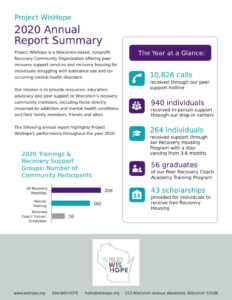Deep in the unspeakable recesses of each person’s mind lie fundamental thoughts spurring action, memory, and habit. Though there are many different motivations behind the functions of subconscious processes — genetics, diet, sleep, etc. — fear offers a window into one of the more effective modes for encoding behavior. Through therapy and personal introspection, adults are able to trace lasting impulses back to thought patterns they first experienced as young children. In addiction recovery, reconciling with these deeply entrenched phobias is referred to as “shadow work.”
Aptly named, the scope of shadow work includes examining aspects of oneself often kept hidden from others. Engaging in this work often proves fulfilling for individuals in recovery looking to reconcile with themselves and others. Acknowledging the dark side of one’s character as well as the lighter side creates a less subjective persona than people might be inclined to paint of themselves. Well-rounded addiction recovery uses shadow work to lead individuals to an accepting catharsis of their own identity — flaws and all.
WHAT IS SHADOW WORK?
Shadow work encompasses coming to terms with the hard-to-accept parts of oneself, also known as the shadow self. The characteristics we may feel too ashamed to show others don’t need to see the light of day, except for the individual heading along the path toward recovery. However, the human mind is equal parts, storyteller and listener, meaning the stories we tell others often become internalized as truth with enough time. Shadow work sets the record straight.
Like any successful accountant knows, attention to detail yields the most accurate results. So, what are the technical practices of shadow work, and how does one stand to benefit from incorporating them? Therapy provides a space to parse through mental health concerns, personality disorders, anxiety, depression, and other aspects of the shadow self. Still, not everyone has access to affordable therapy. Thankfully, several other options allow individuals in recovery to work through the parts of themselves which might not be as easy to accept and love.
- Recovery Programs: Many recovery programs offer steps to address the hidden-away parts of self without judgment. For instance, Alcoholics Anonymous’s 12-Step program delves into shadow work across several steps. One is the 4th-Step, which urges individuals to take a “searching and fearless moral inventory” of themselves. Taking inventory can be done in many different ways, but the emphasis here on “searching and fearless” indicates the weight of the action.
- Writing: Journaling — quite literally the physical act of taking inventory — establishes a present connection with a future reader while drawing from experiences of the past, thereby connecting the individual to three stages of their recovery path. Writing unites the self as someone living in the past, another in the present writing, and the future reader, making the understanding of personal identity more clear. Putting down how we perceive ourselves at our worst opens a rarely-seen window into the vulnerable nature of one’s existence.
- Art Therapy: Using words to depict the embodiment of fear so deep it’s nearly calcified may lack a visceral quality of expression. Painting this shadow self, although open-ended as a means of communication, can capture a truer emotional depth than maybe saying “I am afraid of loneliness” does. Music and dance similarly provide channels by which one might exorcise the shadow self.
- Peer Support: There are many who have taken the same steps before you. While it is helpful to connect with those who identify with the mindset of shadow work, peers in recovery can also provide the context of what this work did down the road. Nobody can predict the future, but listening to the impact of shadow work in the lives of others may help widen a subjective conception of how to view self-reflection. Peers can be found through many online networks and also through connection to shared recovery programs.
WHY DIG UP THE PAINFUL PAST?
As we commence shadow work, the pain of intense self-reflection often sends our defense mechanism flaring up. That information is private, and nobody should judge us at our worst except ourselves! Exactly. The point is to revisit these frequently repressed thoughts and memories in order to accept our own feelings of shame. After all, these shameful thoughts are also born of our own thoughts.
The conscientious mind is fluid and quite capable of finding cracks into the infrastructure of guilt. Even knowing that a past action bears moral and ethical ramifications is enough to trigger unnecessary self-defense mechanisms. What are we so desperate to protect? It is the self-protecting of the more vulnerable self. This is the voice that shadow work aims to connect with, and the self that we must accept in order to recover from the injuries that incited alcohol and/or substance use in the first place.
Every person has a part of themselves that they conceal from others. Usually, this cordoned-off section of thoughts is a part of ourselves that we fear will be judged by others. By assuming so, we also actively judge ourselves. Without taking ownership for the parts of ourselves that we view with negative associations, the space for codependent addiction to thrive in the recesses of these dark corners of consciousness expands. In order to best care for oneself, the individual must understand and accept all aspects of identity. Some parts may be easier to accept than others, but all dimensions of your character withhold value, as they comprise the threads that pull together your personality. Recovery starts with believing in the person who actively needs saving. At WisHope, we champion recovery as a continuing journey and we hope to enlighten the value of sober living through a personalized recovery program, communicating with clients during treatment and long after moving on from outpatient care. Don’t wait to get help — call us today at (844) 947-4673.


